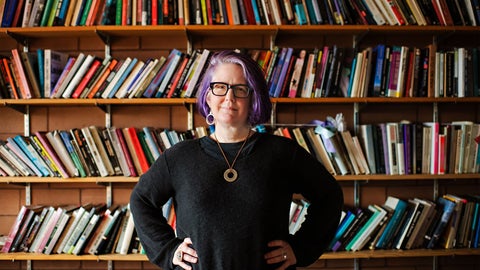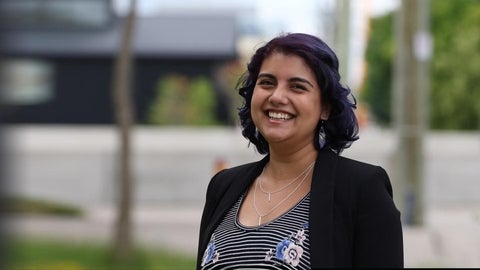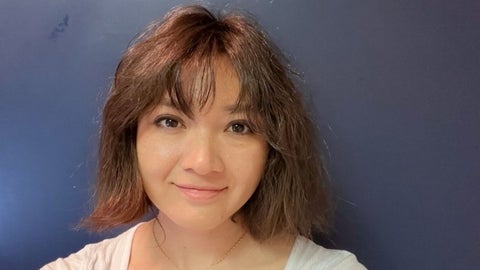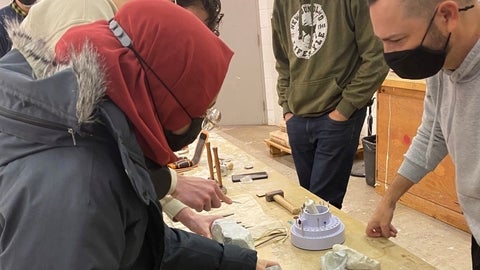
Winter-Spring 2023
Celebrating alumni

Q&A with Jillian Roberts (BA ’91), 2022 Arts Alumni Achievement Award Winner
Dr. Jillian Roberts is renowned for her many roles, especially for her compassionate advocacy for children's mental health.

Q&A with Lehlé Baldé (BA ’13), 2022 Arts Young Alumni Award Winner
Named in Forbes Africa’s 30 under 30, Lehlé Baldé's shining media career is inspired by her grandmother, a journalist in 1960s Senegal.
Research

Courageous innovators must become champions of tech for good
With rapid innovation, technologies are often adopted before the full impact on culture and human behaviours is understood. Dr. Marcel O’Gorman talks about how we can ensure a safe and human-centred digital future.

Waterloo is a feminist philosophy powerhouse
Working for a more diverse and just world, our feminist philosophers are making impacts both inside and outside the discipline.
Alumni impacts

The importance of the humanities in inclusive innovation
Samantha Estoesta (MA ’15, BA ’13) on why asking the right questions at the start of every product development phase is critical to inclusive innovation.

Embracing my career as a feminist advocate
Once denied, now embraced: Roz Gunn (BA ’11) talks about her passion and commitment to working with a feminist organization.
Learning

New programming responds to the needs of today and the future
Dean Sheila Ager shares how our new programs, research and co-op opportunities are meeting the challenges of today and the future.

Making a difference as a co-op student
Masters student Alexandra Battaglini shares how the skills she learned in the classroom are making a difference in the workplace.
Impact of giving

Longhouse Labs: Indigenous leadership in the cultural life of Canada
How the vision for the Longhouse Labs is resonating with foundations and individual donors.

Giving Tuesday 2022: A Recap
Meet some of the students who benefitted from the support of our generous donors this year.

Class Notes
Catch up with your classmates and share your personal and professional accomplishments

Events
- March 22-25, 2023: Our Theatre and Performance program presents Portia’s Julius Caesar
- March 25, 2023: Stratford School's Blend Design and Business Conference
- April 5, 2023: Global Engagement 2023 Desmarais Family Summit
- April 14, 2023: Warriors Football Annual “Ring of Honour” Gala 2023
- June 2-3, 2023: Join us at Alumni Weekend to celebrate your grad anniversary!